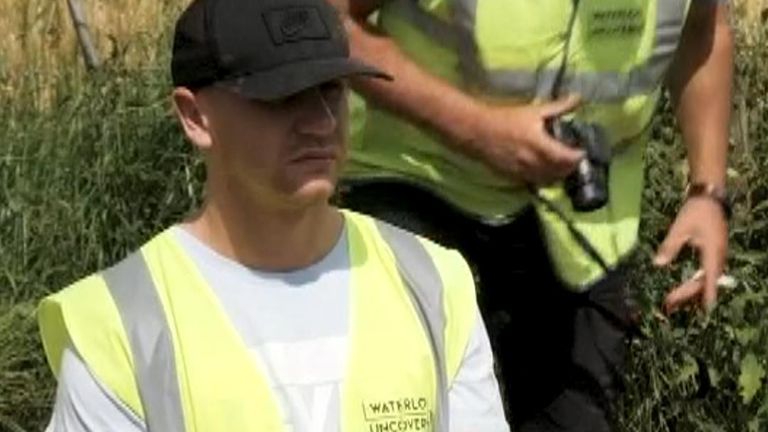Andrew Webster, retired captain of The Green Howards, is among veterans uncovering key sites from the Battle of Waterloo.
The archaeological dig is helping him and others back to health. Here, he tells how the comradeship has given him hope for the future…
I served with The Green Howards (now The Yorkshire Regiment) in the 1980s and 1990s, undertaking numerous tours of Northern Ireland, including a three-year tour of Londonderry/Derry at a time of intense IRA activity in the city.
I was also an instructor at the Northern Ireland Training establishment in Germany, again spending much time in the province.
During my service I was badly injured in rioting in the city and this, along with other trauma events before – during and after my time in the army – led to a severe long-term mental health condition and a diagnosis of complex PTSD.
Advertisement
When a person experiences 20 years of worsening mental health, ultimately leading to an inability to function, deep depression and chronic anxiety, it is hard to imagine the task that lies ahead in order to rebuild what becomes a completely devastated life.
To that end I have chosen archaeology as my vehicle to move forwards.
More from Opinion
Until 20 years ago I had a passion for history and archaeology. Sadly, it was lost to my condition.
But after intensive therapy at a facility in Surrey in 2018 (no words can adequately express my gratitude to the organisers Combat Stress), my life was transformed and I once again I had the possibility of a bright future.
I rediscovered my passion and with it, a sense of direction and purpose that is slowly impacting on all the failed areas of my life.

For my first active foray I approached Waterloo Uncovered and they accepted me on to their 2019 excavation of the battlefield as a member of their veteran support programme – I now have a second charity to whom I am truly indebted.
I am currently working in a team excavating the disused cesspit in the courtyard of the Mont Saint Jean farmhouse.
The farmhouse was the field hospital at the rear of the Allied position. It is a sobering thought to envisage the horror and suffering that was witnessed there on 18 June 1815.
As amputatioRead More – Source
[contf]
[contfnew]

Sky News
[contfnewc]
[contfnewc]






